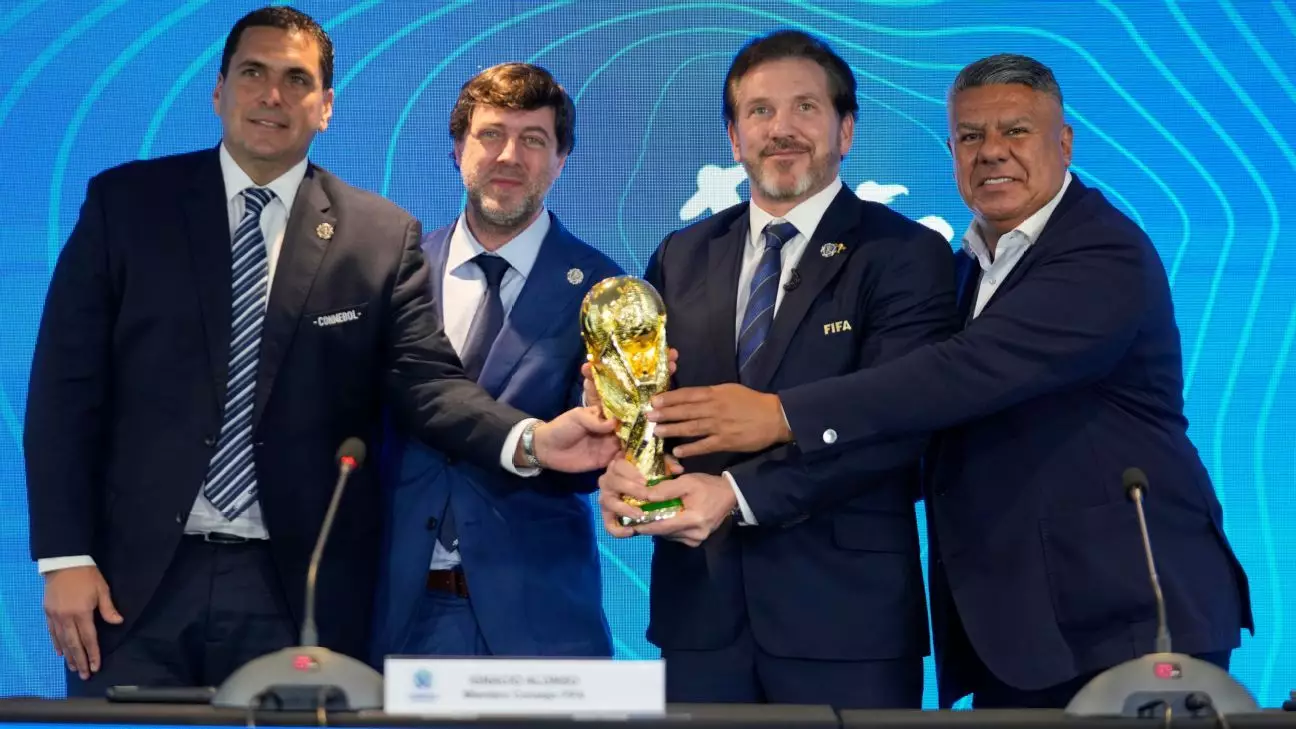The conversation surrounding the potential expansion of the men’s 2030 World Cup to 64 teams raises critical questions regarding the integrity and quality of one of the world’s most treasured sporting events. UEFA president Aleksander Čeferin, who also serves as a FIFA vice president, has voiced strong opposition to this idea, stating unequivocally that it is “a bad idea.” His remarks highlight an inherent tension in the ongoing efforts to globalize football through expanded participation versus the need to maintain a high standard of competition.
Quality vs. Quantity
Critics of the proposal argue that increasing the number of teams from 48 to 64 compromises the quality of the tournament. The addition of 16 more competitors would entail an extensive schedule comprising approximately 128 matches, potentially diluting the caliber of play. The fear is that by prioritizing inclusivity, we may inadvertently create a scenario in which the excitement and competitiveness of the World Cup fade into the background. As Čeferin reminds us, “It is not a good idea for the World Cup itself,” emphasizing the tournament’s sacred status as a pinnacle of sporting achievement rather than merely a platform for financial gain.
The historical context reinforces this apprehension. The World Cup has always thrived on the thrill of intense competition and exceptional talent. Expanding the tournament could lead to a situation where the traditional powerhouses of football face off against underprepared teams, thereby creating predictable matches devoid of the nail-biting drama that fans crave.
Financial Incentives vs. Development
FIFA president Gianni Infantino’s backing of expansion stems from a long-standing belief that broader participation spurs financial growth and fosters development in lesser-known footballing nations. While this strategic approach may benefit FIFA’s coffers and promote grassroots initiatives, the potential negative impact on the quality of the tournament cannot be overlooked. The allure of the World Cup is not only in its global reach but also in the storied rivalries and legendary performances that have defined its history.
It’s a delicate balance to strike; however, sacrificing the essence of the competition for financial motives may erode the prestige attached to this hallowed event.
A Surprising Proposal
The origins of the proposal to expand to 64 teams baffled many, including Čeferin himself. He noted the absence of dialogue regarding this initiative before the formal presentation at the FIFA Council, casting doubts on its legitimacy and suitability. With complex hosting arrangements already in place for the 2030 tournament—with co-hosts Spain, Portugal, and Morocco sharing the limelight with South American nations—it raises questions about the logistical feasibility of such an expansion.
The fact that significant considerations appear to be made without thorough discussions or widespread support within FIFA speaks volumes about the need for transparency in decision-making at the highest levels. As football continues to evolve with global stakes, maintaining the integrity of its most celebrated tournament should be paramount.
In this pivotal moment, it is vital for stakeholders in football to rally around a vision that respects tradition while also embracing growth, ensuring that the World Cup remains a showcase of the best that the sport has to offer.

Leave a Reply